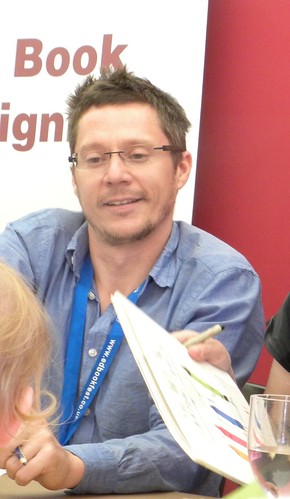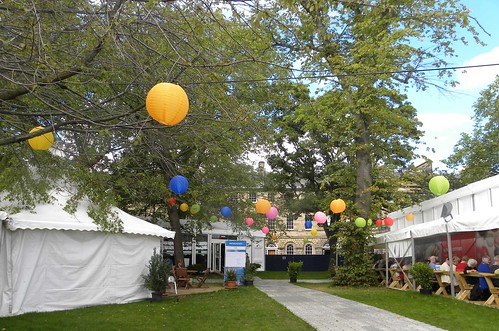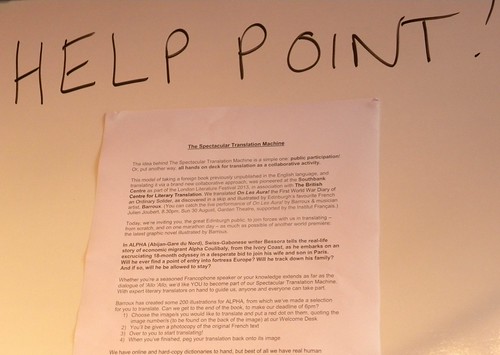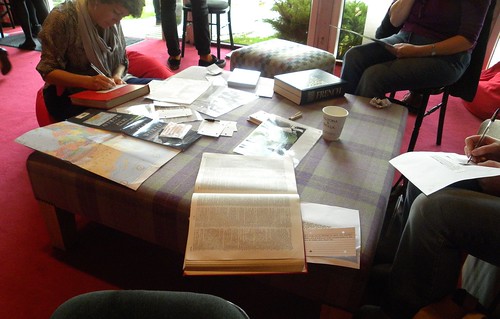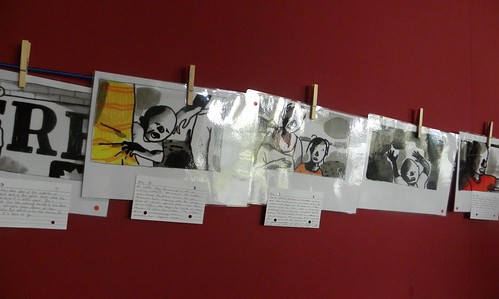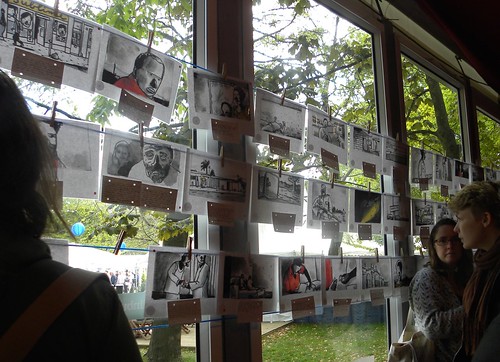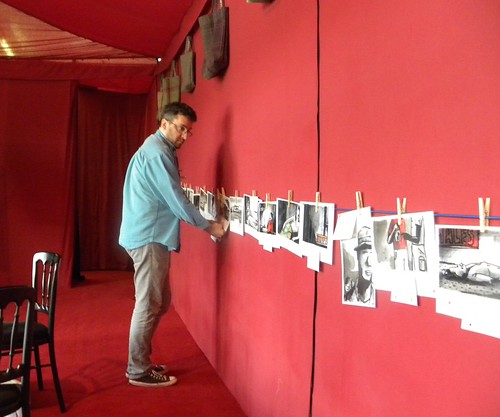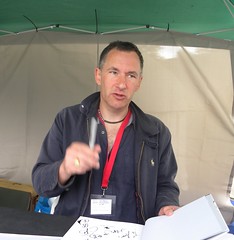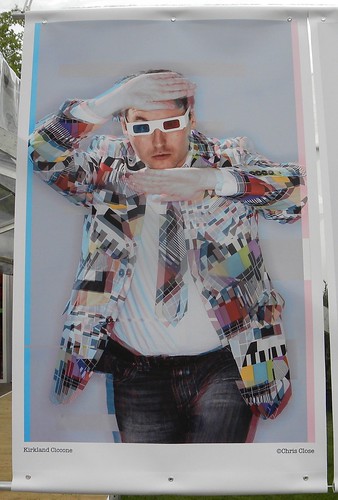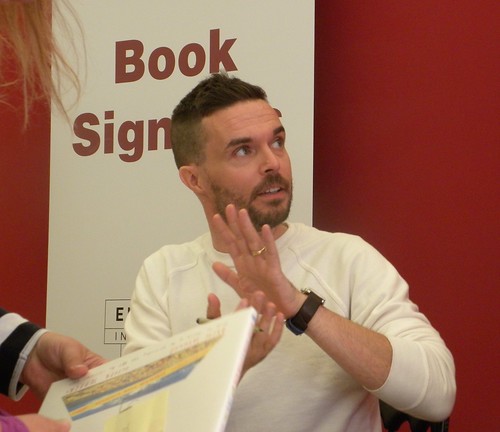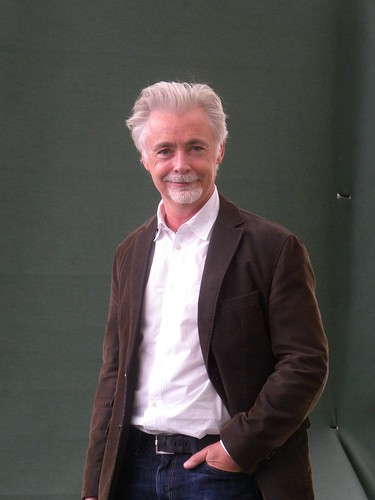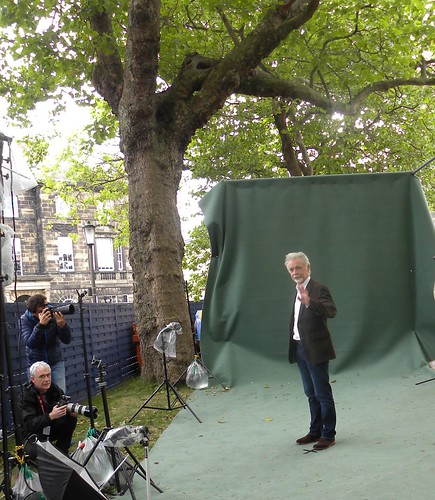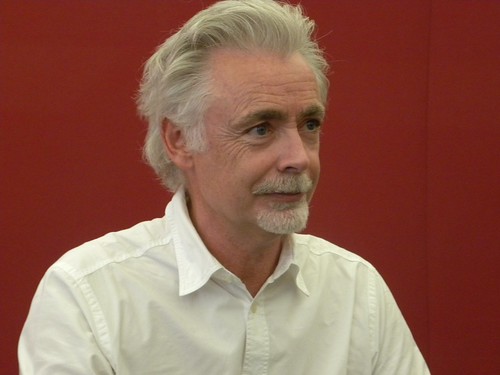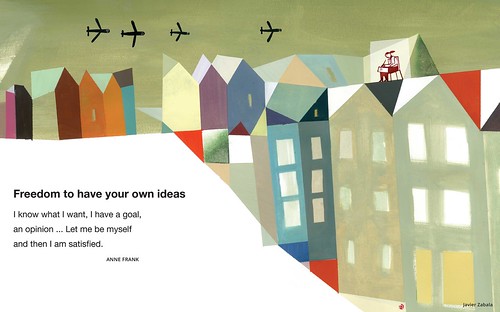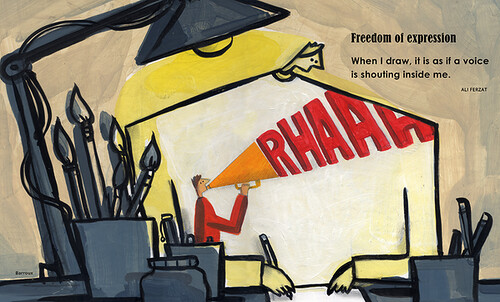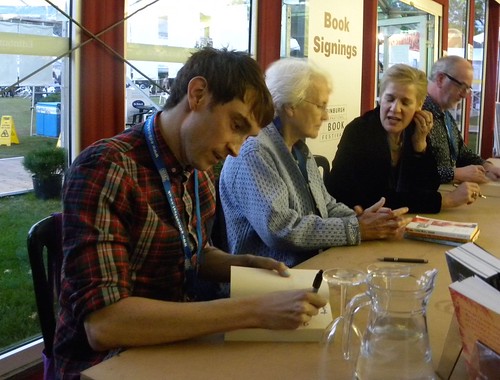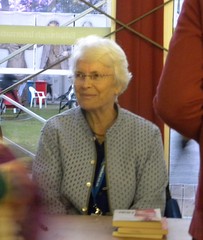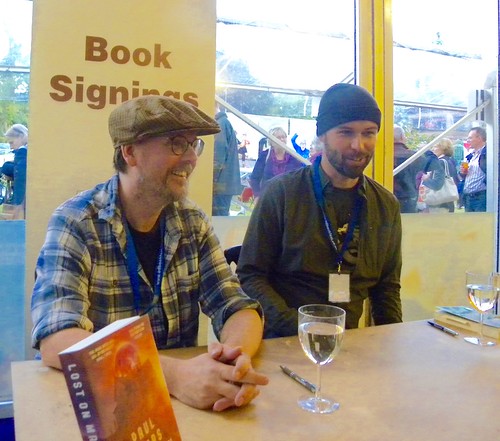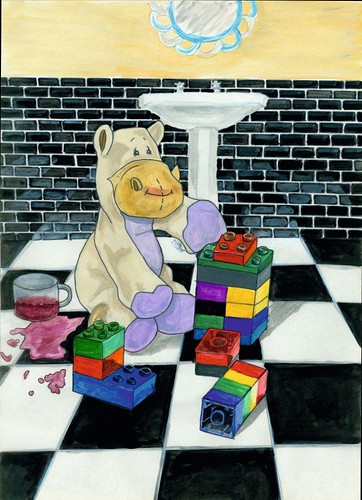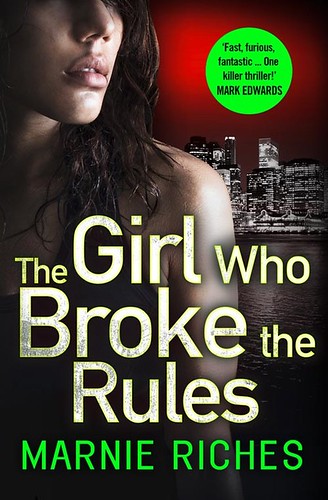On that cheerful note Chris Riddell and his illustrator pals Chris Haughton and Oliver (but Chris for the day) Jeffers ended a humorous – as well as sold out – Sunday morning talk about drawing pretty pictures. The Haughton Chris was saying he finds it hard to make pictures for someone else’s words, whereas the Riddell Chris went so far as to say he prefers other authors to be dead. If he’s going to illustrate their words, that is. Apparently he’s doing stuff to Lewis Carroll at the moment. (Maybe he didn’t mean it?)
I was so tired I even forgot to switch off my mobile phone, but luckily a good event like this will perk you up. A lot of people had crawled out of bed for it, including some of the Chrises’ peers, including the Irish Children’s Laureate Eoin Colfer. I suppose he wanted to check out his UK counterpart, or to see how his illustrator Oliver ‘Chris’ Jeffers performed.
It seems they had already covered the most interesting topics in the yurt, but there was the odd snippet left worth hearing. They sort of interviewed each other, with the Riddell Chris taking the lead. (Well, he is the eldest.) The place to get ideas is in the shower or when making dinner, not sitting at your desk. The Haughton Chris has a rug project, and it now appears all illustrators want to make rugs.
Oliver got his idea for The Great Paper Caper while watching an episode of Columbo, which the Riddell Chris felt explained his coat. As for himself he often begins with the number of pages in his sketchbook. He has a naughty drawer where failed ideas marinate until they can be used. Oliver’s alphabet book came from two bad ideas, that worked when mixed together.
The Haughton Chris once had an idea about scale, which didn’t work at all, but which will be out as a book next year, with the title Goodnight Everyone. Riddell’s Goth Girl was based on one bad pun, ‘mad, bad and dangerous to gnomes.’ (I reckon you need to read the books to get it.)
They love their editors! The editors adjust the words they have written and make their books good. Oliver’s advice on quality is to trust your own ability. He is his own audience, and only wants to do what he himself likes. Chris Haughton wants everything to be as simple as possible, and keeps reducing until he gets there. Chris Riddell learned from David Lloyd that if you can’t read it aloud, then it is no good. These days he has a very useful daughter, who is quick to judge his work.
A young man in the audience wanted to know how to draw eyes, so all three showed us their eyes. Oliver Jeffers said you only need two dots. Chris R mentioned a ‘talking cockroach with manga eyes’ and Chris H is so ambidextrous he could barely decide which hand to use to hold his ‘great lump of lead.’
Asked how to deal with procrastination and to scare one member of the audience into getting on with it, Oliver told her she’d soon be dead. Chris H had talked about plans for a children’s book for so long, that in the end all he could do was buy a ticket to Bologna and then make sure he had something to show when he got there. Chris R told us about his first meeting with Klaus Flugge’s eyebrows, which caused him to pretend he’d left his story at home, allowing him just one night to write his first book.
So, paint yourself into a corner.
The three listed some of their illustrator heroes, and how you can’t really come up with anything new. You can only try and do the same, but better and prettier.
Oliver’s parents didn’t insist he get a proper job, for which he’s grateful. He and Chris H both work in places where there are many other likeminded people who can inspire and support. And Chris R has his daughter.
The father of a six-week-old baby, Oliver is starting to work shorter hours, when before he would do 12 hours seven days a week. You have to relax sometimes, in order to be creative. On the other hand, Chris Riddell relaxes by drawing every day, or he gets fidgety. He has a sketchpad in his pocket all the time. Chris Haughton works quite randomly, and he has those rugs, as well as sketchpads where he collects his ‘best of,’ and words and thinks ahead. Oliver has been known to stare at old notes, not understanding what he’d been thinking when he wrote it.
And here is where they came to the conclusion that dead authors are easier to work with than live ones.

